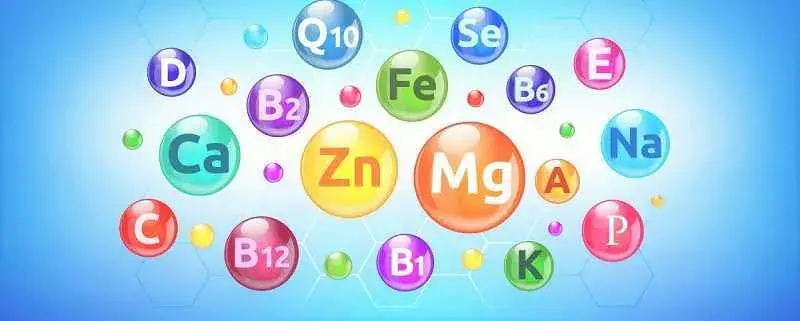What is Minerals?

What Is Minerals?
Minerals play a crucial role in the human body, ensuring optimal functioning and overall health. There are two broad categories of minerals – macro minerals and micro minerals. While these minerals do not directly provide energy, they contribute to energy generation through their metabolic functions. Furthermore, minerals help in maintaining body fluid balance, regulating the acid-base balance, and supporting the formation of structural units like bones and teeth. Minerals are also essential in the formation of hemoglobin and thyroxine, as well as acting as cofactors in enzymatic reactions.
What Are Macro and Micro Minerals?
Minerals can be classified into macro minerals and micro minerals depending on the amount present in the body and the daily requirement. Macro minerals are the major minerals found in the body and constitute at least 0.01% of total body weight, or occur in quantities of at least 5 grams in a 60 kg body. Macro minerals are required in amounts greater than 100 mg per day. On the other hand, micro minerals are needed in smaller quantities, typically ranging from a few milligrams to micrograms per day.
While both macro minerals and micro minerals are essential for the body, their roles differ slightly. Macro minerals largely perform structural functions. For example, 99% of the body's calcium, 85% of its phosphorus, and about 50-60% of magnesium is found in bones and calcified tissue. In contrast, micro minerals are more involved in catalytic roles, although some macro minerals also take part in regulatory functions.
Functions of Macro and Micro Minerals
Macro minerals such as calcium, magnesium, and phosphorus are essential for maintaining bone structure and strength. Calcium, for instance, serves as a messenger in signal transduction processes in nerve and muscle cells, while phosphorus helps in enzyme regulation and forms a crucial part of phospholipids and phosphoproteins in cell membranes.
Micro minerals, though required in smaller quantities, play vital roles in catalytic processes. For example, magnesium, a macro mineral, also exhibits catalytic properties in various biochemical reactions. Despite the primary structural role of macro minerals, there is an overlap, as some macro minerals also perform regulatory functions, just as micro minerals do.
Calcium: A Key Macro Mineral
Among the macro minerals, calcium (Ca) is the most abundant in the human body, accounting for 52% of its mineral content. Nearly 99% of the body's calcium is located in the skeleton, while the remaining 1% is distributed between the teeth, soft tissues, and extracellular fluid. Calcium plays a crucial role in bone mineralization, acting as a component of the skeleton and regulating muscle contractions.
Bone Mineralization
Bone, a living tissue, is unique in being rigid and strong, yet light enough to be moved by muscle contractions. Minerals, particularly macro minerals like calcium, make up two-thirds of the bone's weight, while water and collagen account for the remaining one-third. Bone is continuously resorbed and formed throughout life, with the help of various bone cells. Macro minerals like calcium are crucial in this process, making bone formation one of the most important functions of minerals in the body.
Dietary Sources of Calcium
Calcium-rich foods include dairy products, grains, pulses, and millets like ragi. While calcium is a macro mineral, its absorption in the body can vary depending on the source. For instance, phytates in whole grains can inhibit calcium absorption, but fermentation processes can reduce phytate content and improve bioavailability.
Factors Affecting Calcium Absorption
The amount of calcium consumed is not necessarily the amount that gets absorbed into the body. Several factors affect the bioavailability of this macro mineral. The bioavailability of calcium can be defined as the fraction of dietary calcium that the intestine absorbs and uses for physiological functions, especially bone mineralization. In situations where calcium intake is low, the body adapts by absorbing a higher percentage of this vital macro mineral.
Calcium Supplementation
For individuals who do not meet their calcium requirements through diet, supplements may be recommended. Postmenopausal women, in particular, are often advised to take calcium supplements. However, it's important to note that supplements should be taken with meals, and the body absorbs calcium most efficiently when doses are 500 mg or less.
Deficiency of Calcium
A deficiency in calcium, one of the most essential macro minerals, can lead to several health issues. Insufficient calcium intake may cause increased bone resorption, slowed skeletal growth, and even rickets in children. In postmenopausal women, calcium deficiency is associated with osteoporosis. To combat these effects, increasing dietary intake of calcium or supplementing with this critical macro mineral is often recommended.
Calcium Toxicity
Although calcium is necessary for health, excess intake of this macro mineral can lead to toxicity. High levels of calcium in the blood may cause symptoms such as constipation, nausea, increased urination, and even kidney failure. It's important to follow recommended daily intake levels, with the upper limit being 3 grams of calcium per day according to the FAO/WHO guidelines.
Daily Calcium Requirements
The daily requirement for calcium, one of the most vital macro minerals, depends on several factors including growth, pregnancy, and lactation. The RDA (Recommended Dietary Allowance) for an adult male in India is approximately 700 mg per day. This calculation accounts for the calcium lost through urine, stools, bile, and sweat. In adults, only about 20-30% of dietary calcium is absorbed, with adequate vitamin D playing an important role in the absorption of this macro mineral.
In conclusion, both macro minerals and micro minerals are essential for maintaining health and optimal body functions. Macro minerals like calcium, magnesium, and phosphorus play important structural roles, especially in bone and teeth formation. Micro minerals have catalytic roles, assisting in biochemical reactions that are critical to various metabolic processes. Understanding the balance between these two categories of minerals is key to achieving a healthy and functional body.
Guides
- Benefits of Protein
- 7 Healthy Eating Habits
- 7 Most Effective Exercises At Home
- Home Workout Plan Without Equipment
- Top 10 Biggest Nutrition Myths
- How To Get Flexible Body?
- Weight Loss VS Fat Loss
- What is Keto Diet?
- What Is Minerals?
- What Is Digital Marketing ?
- Best Free Tools For Beginner You Tubers
- Best Teas For Weight Loss & Fat Burning
- Green Tea: Health Benefits And Side Effects
- Yoga for Weight Loss and Fat Burning
- What Is Type-2 Diabetes?
- How To Write Eye-Grabbing Resume
- The Ultimate Guide To Prepare For An Interview
- 10 Best Health Benefits Of Eating Mango
- healthy eating habits for kids
- 10 tips for starting your Fitness Transformation
- 10 Reasons Why People Hate Gym & How to Overcome Them
- Fuel Your Passion For Nutrition: Explore The Power Of A Nutrition Course
- Shed Pounds with Ease: Vegetarian Diet Plan for Weight Loss Revealed!
- Anabolic steroids: Types, Uses, and Side Effects
- Find Your Path to Success: Choosing the Right Fitness Certification Program in India
- learn gym trainer course offline at surat with best faculties
- Learn about Body Composition and How it Affects Your Health
- Nutrition course online with affordable fees
- Online Dietitian Plan vs In-Person Consultation: Which is Right for You?
- The Importance Of Fitness Education In Today's World
- How to find right fitness institute in india
- How to Actually Build Muscle When You Work Out
- Is Becoming a Gym Trainer in India Worth It?
- Why Online Dietician Courses Are in High Demand in India: A Practical Guide for Future Professionals
- 7 Powerlifting Training Mistakes Beginners Still Make & (How to Fix)
- Top 10 Evidence-Based Immunity-Boosting Habits to Stay Healthy in 2025
- What Can You Do After Personal Trainer Certification? Real Career Outcomes 2026
- Choosing a Fitness Coach Course That Actually Pays: The 2026 Guide
- Is your NSDC Fitness Certificate Valid in Dubai? The 2026 Guide for Indian Trainers
- 7 Fitness Trends 2026: What Experts Actually Predict
- 10 Types of Group Fitness Classes Near Me


About Dr.Gautam Jani
Dr. Gautam is a civil engineer. By passion he is a dietitian and had started practising it in the year 2016. He is the founder of fitnesswithgomzi firm established in 2018. He has achieved many certificate from ACSM, ISSA and VLCC.

